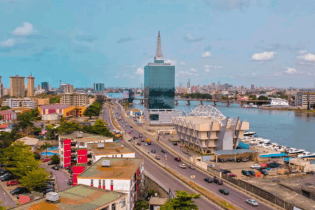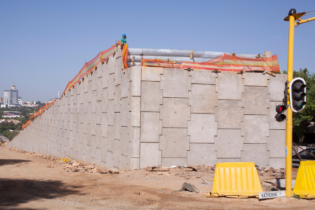South Africans could face more power cuts, as the distribution grid will gradually collapse from 2015 unless a maintenance backlog is addressed, an expert said on Thursday.
“We are three years away from collapse,” Deon Louw, the deputy director of electro-technical services in Overstrand municipality, Western Cape, told MPs. “It is going to collapse in stages, as some parts are older than others. We will see power failures.” Louw told public hearings on the electricity distribution industry – hosted by Parliament’s portfolio committee on energy – that the lifespan of a distribution network was 50 years, and said the various components of South Africa’s had an average age of 47 years. He said power failures were often wrongly blamed on Eskom’s generation capacity, when in fact the fault lay with the ageing distribution infrastructure. Two days of hearings have seen experts reiterate warnings that the country faced a R35 billion backlog in distribution maintenance, of which R10 billion was needed on the Eskom network, while the rest referred to municipal networks. But Louw said municipalities often “stole” from their maintenance funds to cover other unforeseen expenses, such as higher than expected salary increases. “That is often the one area where they can reduce expenditure.” Louw said at the moment R3.5 billion was spent annually on ongoing maintenance, but the figure needed to increase to R6.5 billion. His comments added to a bleak portrayal by other presenters in two days of hearings, of how poorly managed municipalities failed to perform maintenance though power distribution was a revenue source.The National Planning Commission proposed that national energy regulator Nersa take a driving role in redressing the situation, pointing out that it had the means to force municipalities to act.
But the regulator cautioned that the sanctions it could impose on errant municipalities, including revoking their distribution licences, were firstly not a fast cure, and secondly not always realistic. Nersa’s Thembani Bukula said municipalities did not fail to perform maintenance purely because they lacked expertise or funding. “Sometimes there is no alternative to switch to [other parts of the network] while performing maintenance on one part of the network, or then you lose supply,” Bukula said. He said though Nersa could ringfence funding for maintenance, this did not guarantee the money would be spent for that purpose. The hearings saw a call for a one percent levy to be charged on distribution to add to funding, to ease the backlog, but also a warning from business against further price escalation. Nedbank chief economist Dennis Dykes said businesses had gone from spending 5% of their budget on electricity in 2005/06 to 11% at present, and if tariffs increased as expected this would reach 15% in five years’ time. Thus pressed, companies would save on labour and this would impact on employment, he said. Source: fin24





